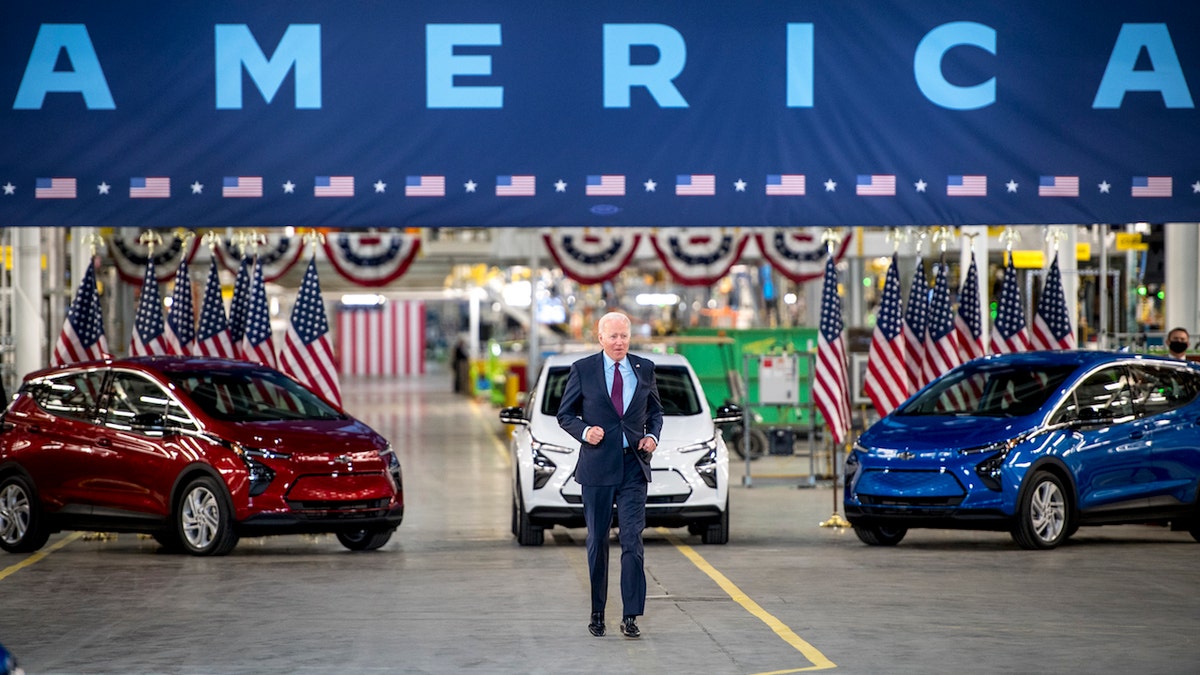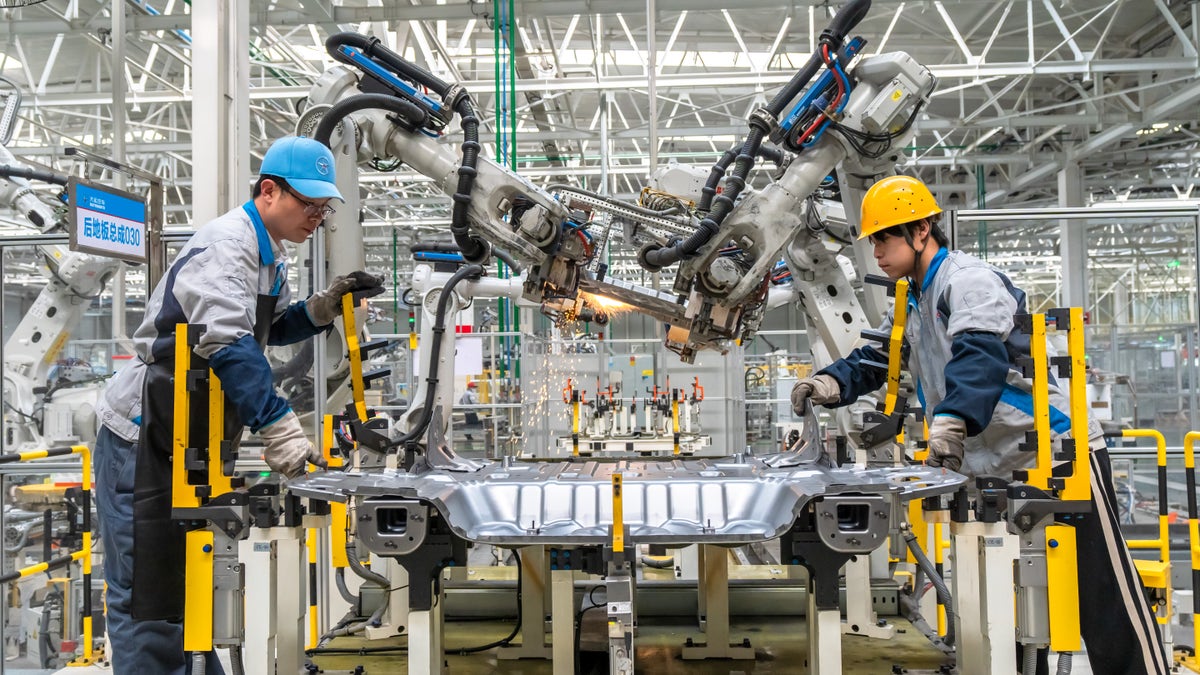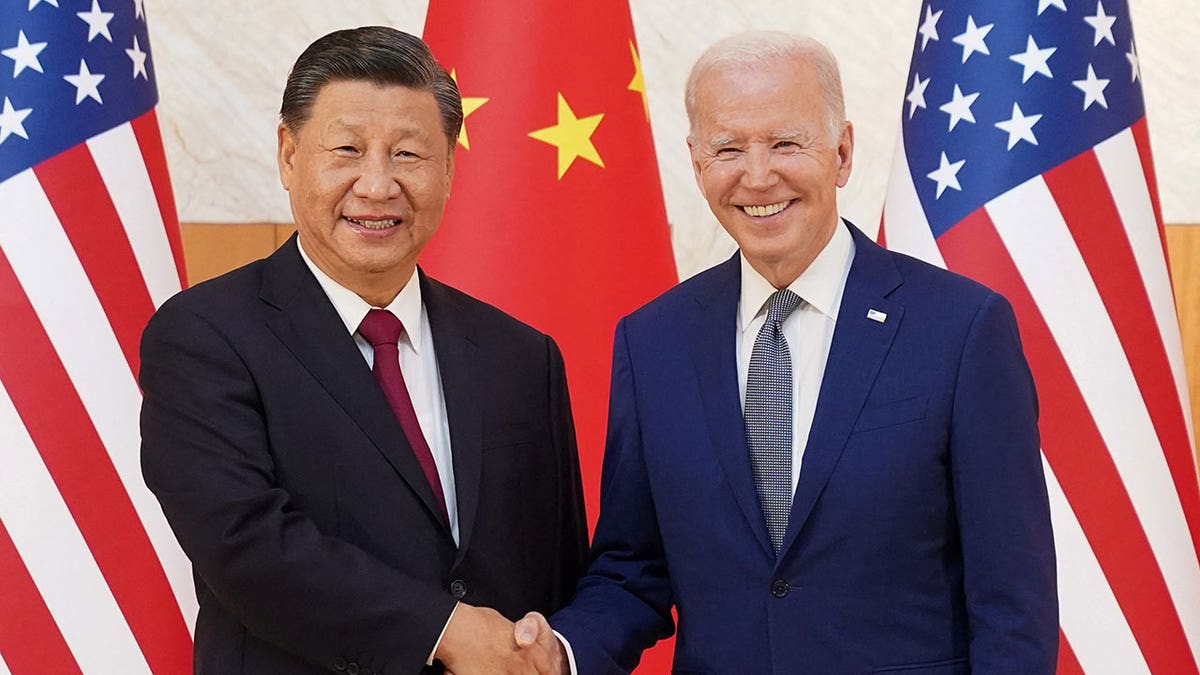Kellyanne Conway rips Biden over new EV push: He's the 'jalopy of cars'
'Outnumbered' panelists discuss the EPA's latest climate regulations in an effort to push Americans toward electric vehicles.
President Biden's aggressive plans to push more Americans to purchase electric vehicles (EV) could significantly increase U.S. reliance on China, which currently dominates the mineral and battery supply chains.
On Wednesday, the White House unveiled sweeping tailpipe emissions standards for gas-powered cars made between 2027 and 2032, saying the toughest-ever rules of their kind would reduce carbon emissions by 10 billion tons over the next three decades. However, over the past decade, China has developed a strong foothold across the entire EV supply chain from mining and refining to battery production.
"China holds various percentages of dominance in various levels of the supply chain and various products, elements, etc.," Andrew Horn, a former senior official in the Office of International Affairs at the Department of Energy, told Fox News Digital in an interview. "But essentially, they either control indirectly or directly the mass majority of the global market, including what we in the U.S. consume."
"They have, essentially, a massive chokehold over the entire market," said Horn, who also helped craft national critical mineral strategy at the White House. "The U.S. right now has very minimal options."

President Biden makes his entrance at General Motors' Factory ZERO electric vehicle assembly plant in Detroit, Michigan, on Nov. 21, 2021. (Nic Antaya/Getty Images)
If finalized, the Biden administration's rules announced Wednesday would lead to 67% of new light-duty car purchases being electric by 2032 across the country. The emissions standards, which require automakers to achieve a 56% carbon emissions reduction in 2032 vehicles compared to 2026 models, are further expected to force nearly half of all new sedans to be electric within just four years.
According to the International Energy Agency (IEA), though, China produces about 75% of all lithium-ion batteries, a key part of EVs, worldwide. The nation also boasts 70% of production capacity for cathodes and 85% for anodes, two key components of such batteries.
CHINESE TECH COMPANIES ARE EXPLOITING US GREEN ENERGY GOALS, FORMER STATE DEPARTMENT OFFICIALS WARN
In addition, more than 50% of lithium, cobalt and graphite processing and refining capacity is located in China, the IEA data showed. Those three critical minerals, in addition to copper and nickel, are vital for EV batteries. Chinese investment firms have also been aggressive in purchasing stakes in African mines, especially those rich with cobalt in the Democratic Republic of the Congo, in recent years to ensure a firm control over mineral production.
"For the life of me, I can't understand why we would want to do this and subject ourselves to the Chinese Communist Party, which has said they want to supplant the United States as a global hegemony," Derrick Morgan, the executive vice president of the free market Heritage Foundation, said in an interview with Fox News Digital. "Why we would do this and play right into their hands has got me."
"It's true that the U.S. is projected to increase our battery capacity 10 times, but once we do that, we're still going to be less than 10% of the world supply – even after we go up 10 times, assuming we can even do that," Morgan said. "We'd have something like one-seventh or so the size of China's battery projection, even if all this new investment takes place."

Workers assemble electric vehicles at a factory in Yuncheng, Shanxi Province of China, on March 28. (VCG/VCG via Getty Images)
Horn, who in 2021 founded GreenMet, a private firm working to onshore critical mineral production, said nascent efforts to develop critical mineral and EV manufacturing supply chains in the U.S. and other Western nations will take more time and still face significant barriers from Chinese competitors.
"Those efforts are going to take a little bit of time to get up and running and fully be able to challenge some of the current Chinese dominance," he told Fox News Digital.
"And the Chinese get a vote in that. They're going to be watching this closely as they are now, trying to flood the market and do anything else they can with price manipulation, etc., to try and prevent competitors from coming online because it's obviously against their interests."
BIDEN ADMIN ISSUES 20-YEAR MINING BAN AS IT TURNS TO FOREIGN SUPPLY CHAIN AMID GREEN ENERGY PUSH
Horn's company is currently involved in six critical mineral projects that it says will strengthen domestic supply chains.
However, permitting and environmental regulations have largely prevented the U.S. industry from gaining any traction in the global EV supply chain. For example, in 2022, the U.S. produced no graphite, less than .01% of global cobalt, less than .01% of global nickel, and about 6% of global copper, federal geological data showed. The U.S. processes virtually no copper, nickel, cobalt, lithium or rare earth minerals.

China produces about 75% of all lithium-ion batteries needed for electric vehicles, according to the International Energy Agency. (Reuters/Kevin Lamarque)
Meanwhile, the Biden administration has moved to restrict large critical mineral mining projects across the country. In one instance, the Department of the Interior issued a 20-year mining ban in a northern Minnesota forest area home to about 88% of the nation's cobalt reserves and vast copper, nickel and platinum-group elements.
"The only winner here is China, as Joe Biden continues to hand our foreign adversaries every advantage possible," Rep. Pete Stauber, R-Minn., the chairman of the House Natural Resources Energy and Mineral Subcommittee, said in January after the ban was issued.
CLICK HERE TO GET THE FOX NEWS APP
And, on Wednesday, House Energy and Commerce Committee Chair Cathy McMorris Rodgers, R-Wash., similarly said the administration's tailpipe emissions standards would primarily benefit China.
"This will hurt low-income families the most, while also making us more reliant on China for critical materials necessary for electric vehicles," she said in a statement. "It’s a lose-lose for American families and for American security."















































